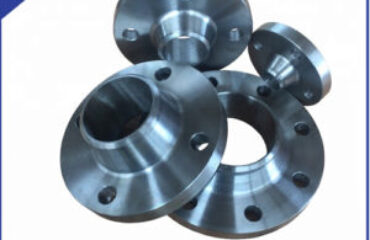
Square special flanges stand out in industrial connections due to their distinct shape and functional design. Unlike round flanges, their square structure offers unique benefits in various applications, making them a preferred choice in specific scenarios.
Design and Structure
The square shape of these flanges provides a larger sealing surface compared to traditional round ones. This expanded area enhances the stability of connections, especially in systems where alignment is critical. Four evenly spaced bolt holes, typically positioned at each corner, ensure uniform pressure distribution when fastened. This design minimizes the risk of leaks, a crucial factor in fluid and gas transfer systems.
The flat, rigid surface of square special flanges allows for easier alignment with other square or rectangular components. This compatibility simplifies installation in setups involving square pipes, ducts, or equipment, reducing assembly time and potential errors.
Functional Advantages
In high-pressure environments, the square design distributes stress more evenly across the entire flange surface. This structural advantage helps maintain integrity under extreme conditions, from industrial pipelines to heavy machinery. The rigidity of the square form also resists deformation, ensuring long-term performance in dynamic systems.
Another key benefit is versatility in mounting. The straight edges and corner bolt holes allow for secure attachment to flat surfaces, walls, or frames, expanding their use beyond typical pipe-to-pipe connections. This adaptability makes them valuable in custom industrial setups.
Common Applications
Square special flanges find use in diverse industries. In water treatment facilities, they connect square-section pipes in filtration and distribution systems, where leak prevention is vital. HVAC systems utilize them to join rectangular ducts, leveraging the flange’s shape for efficient airflow management.
Industrial manufacturing plants employ these flanges in machinery assemblies, particularly where square tubing or structural components require secure joining. They also appear in agricultural equipment, supporting irrigation systems and processing machinery with their reliable connections.
Material Considerations
Manufacturers produce square special flanges from various materials to suit different environments. Carbon steel variants work well in general industrial settings, offering strength at an economical cost. Stainless steel options excel in corrosive environments, such as chemical processing or marine applications, due to their resistance to rust and degradation.
For high-temperature applications, alloy materials provide the necessary heat resistance, maintaining structural integrity in furnaces or power generation systems. The choice of material depends on factors like temperature, pressure, and the nature of substances flowing through the connected system.
Sizing and Standards
These flanges come in a range of sizes to fit different pipe diameters and industrial needs. Standard dimensions ensure compatibility with other components, though custom sizes are available for specific applications. Adherence to industry standards guarantees consistent performance and interchangeability, important for maintenance and replacements.
In summary, square special flanges offer unique advantages through their design, functionality, and versatility. Their ability to provide secure, leak-resistant connections in various industrial settings makes them an essential component in many systems, with material and sizing options to meet specific operational requirements.
 Language
Language Espanol
Espanol English
English Italian
Italian عربى
عربى
 Skype: chinamaker99
Skype: chinamaker99  Tel: 86-316-5120812
Tel: 86-316-5120812  Email:
Email:  Whatsapp:
Whatsapp: 